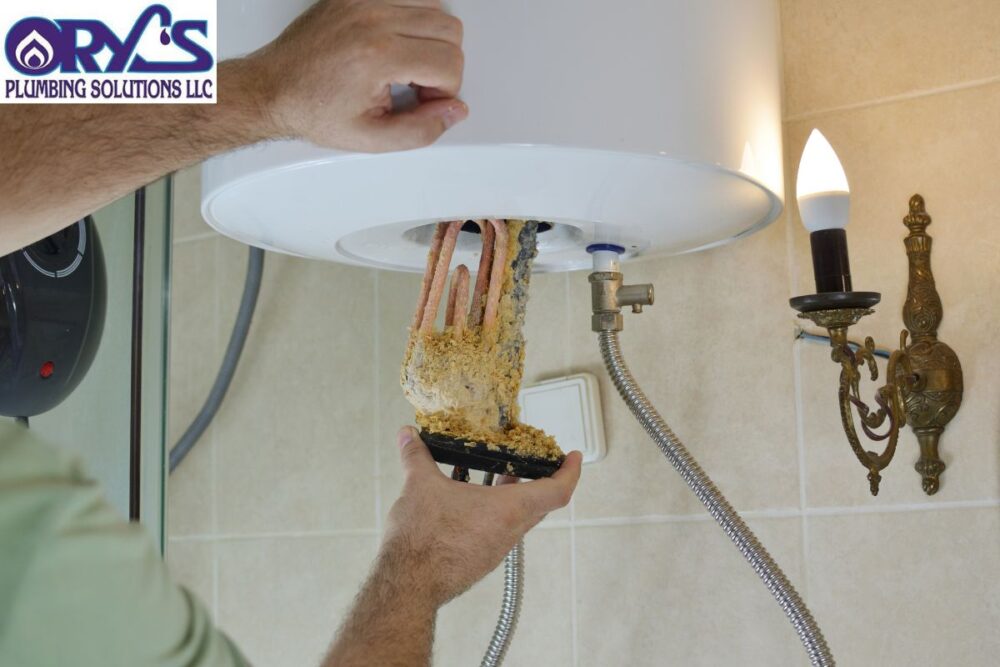Should I Repair or Replace My Water Heater?
Key Takeaways
- Watch for warning signs like lukewarm water, strange noises, rusty or smelly water, and leaks these can signal it’s time to repair or replace your water heater.
- Repair is best for newer units with small, affordable issues especially if they’re under warranty and not more than 8 years old.
- Replacement makes sense when the unit is over 10 years old, has major damage, needs frequent repairs, or causes rising energy bills.
- Always consult a professional for a proper diagnosis, clear cost comparison, and safe installation that follows local codes.
Deciding whether to fix your water heater or get a new one can be a big question for homeowners. It’s a common problem, and making the right choice can save you money and headaches in the long run. This guide will help you understand what to look for and how to decide if repairing or replacing your water heater is the best option for your home.
Signs Your Water Heater Needs Attention
It’s important to know when your water heater is trying to tell you something. Catching problems early can help you decide if a simple fix is all you need or if it’s time for a new unit.
- No Hot Water / Tepid Water: If your shower suddenly turns cold, or the water just isn’t getting as hot as it used to, this is a clear sign something’s wrong. It could be a small issue like a broken thermostat or a problem with the heating parts inside.
- Discolored or Smelly Water: If your hot water looks rusty, cloudy, or has a strange smell, it might mean there’s rust inside the tank or too much mineral buildup. This can also happen if the “anode rod,” which helps prevent rust, is worn out.
- Loud or Strange Noises: Hear popping, rumbling, or banging sounds from your water heater? This usually means there’s a lot of sediment (like sand or dirt) built up at the bottom of the tank. This sediment gets heated and causes these noises.
- Water Leaks Around the Unit: This is a serious sign. If you see water puddling around the base of your water heater, it often means the tank itself is leaking. A leaky tank usually cannot be repaired and means you’ll need a new water heater.
- Higher Water Bills: If your energy bills suddenly go up, and you haven’t changed how much hot water you’re using, your water heater might be getting old and less efficient. It’s working harder to heat the water, costing you more money.
- Reduced Hot Water Pressure: If the hot water flow from your faucets isn’t as strong as it used to be, it could be due to mineral deposits or sediment building up in the pipes or the heating parts of your water heater.
When to Consider Repairing Your Water Heater
Sometimes, a simple repair is all it takes to get your hot water back. Knowing when to choose a repair can save you money and extend the life of your current unit.
- Minor Issues & Cost-Effectiveness: If the problem is something small and inexpensive to fix, like replacing a faulty thermostat or a heating element, a repair is usually the smart choice. These fixes are often much cheaper than buying a whole new water heater.
- Unit is Relatively New: If your water heater is less than 8 years old, it usually makes more sense to repair it. Most newer units are designed to last longer, and a small problem shouldn’t mean you need to replace the whole thing.
- Under Warranty: Check if your water heater is still covered by its manufacturer’s warranty. If it is, parts and sometimes even labor for repairs might be free or much cheaper, making repair a very attractive option.
- Minimal Disruption: Repairs are typically much quicker to complete than installing a brand-new water heater. This means you’ll have your hot water back sooner, with less hassle and interruption to your daily routine.
When to Consider Replacing Your Water Heater
There are times when repairing your water heater just isn’t worth it. Knowing when to bite the bullet and replace it can save you from constant breakdowns and higher bills in the long run.
- Age of the Unit: How old is your water heater? Most traditional tank water heaters last about 10–15 years. Tankless models can last even longer, sometimes over 20 years. If your unit is nearing or past its typical lifespan, replacing it is often a more reliable choice than pouring money into repairs.
- Severity of Damage: If your water heater has major problems, like a ruptured (burst) tank or severely corroded parts, replacement is almost always necessary. These kinds of issues are usually too expensive or impossible to fix.
- Frequent Repairs: Are you constantly calling a plumber to fix your water heater? If your unit needs repairs often, it’s a sign that it’s just getting old and unreliable. In these cases, buying a new one will likely save you money and stress in the long run.
- The 50% Rule: A good rule of thumb is the “50% rule.” If the cost to repair your water heater is more than half the cost of buying a brand-new one, it’s generally better to replace it. For example, if a new heater is $1,000 and the repair is $600, replacing it is probably the smarter move.
- Increased Energy Bills & Inefficiency: Older water heaters are not as good at heating water as newer, more energy-efficient models. If your energy bills are going up because your water heater is working too hard, a new unit can significantly cut down on your utility costs over time.
- Outdated Safety Standards: Very old water heaters might not have modern safety features, which could pose risks to your home. Newer models come with improved safety mechanisms, giving you greater peace of mind.
- Changing Household Needs: Has your family grown, or do you find yourselves needing more hot water than before? Your current water heater might not be big enough. Replacing it with a larger or a more efficient tankless unit can better meet your increased hot water demands.
Consulting a Professional
When in doubt, the best step is always to call a professional plumber or HVAC technician. They can accurately assess your water heater’s condition, tell you what’s wrong, and give you clear options for repair or replacement.
- Expert Assessment: Professionals have the tools and knowledge to correctly diagnose the problem with your water heater. They can tell you exactly what needs to be done and if it’s even possible to fix.
- Upfront Costs: A good technician will provide you with a clear estimate of repair costs versus replacement costs. This allows you to compare and make an informed decision without any surprises.
- Ensuring Safety and Compliance: Professionals ensure that any repairs or new installations meet local building codes and safety standards, preventing future problems and keeping your home safe.
- New Water Heater Warranties: If you decide to replace your water heater, a professional installer will ensure your new unit’s warranty is valid. New water heaters come with warranties that protect you from manufacturing defects for several years.
Conclusion
Deciding whether to repair or replace your water heater can feel like a tough call. By looking at key factors like its age, the severity of the damage, how much it costs to fix, and how efficient it is, you can make a choice that’s best for your home and your wallet. Investing in a reliable hot water system will give you peace of mind and comfort for years to come.
FAQ
Is it better to repair or replace a hot water heater?
It depends on the problem and the age of your water heater. If it’s less than 8–10 years old and the fix is small, a repair can make sense. But if it’s older or keeps having issues, replacing it is the smarter choice.
What is the average life of a water heater?
Most water heaters last about 8 to 12 years. Tankless models can last longer, sometimes up to 20 years, if well cared for.
How do you know if a hot water heater needs to be replaced?
Signs include rust-colored water, strange noises, not enough hot water, or water leaking around the tank. If you notice these, it’s time to think about a replacement.
Is it worth repairing a 20-year-old water heater?
Usually, no. A 20-year-old water heater is at the end of its life. Fixing it might cost a lot and still not last long. A new one will be more reliable and energy efficient.
Why do plumbers charge so much to replace a water heater?
Replacing a water heater takes skill, time, and the right tools. It also needs to follow safety rules and codes. The price often includes removing the old unit, installing the new one, and any parts needed.
How can you tell when a water heater is going out?
You might notice lukewarm water, banging noises, or water that smells or looks rusty. Leaks or puddles around the unit are also warning signs.



